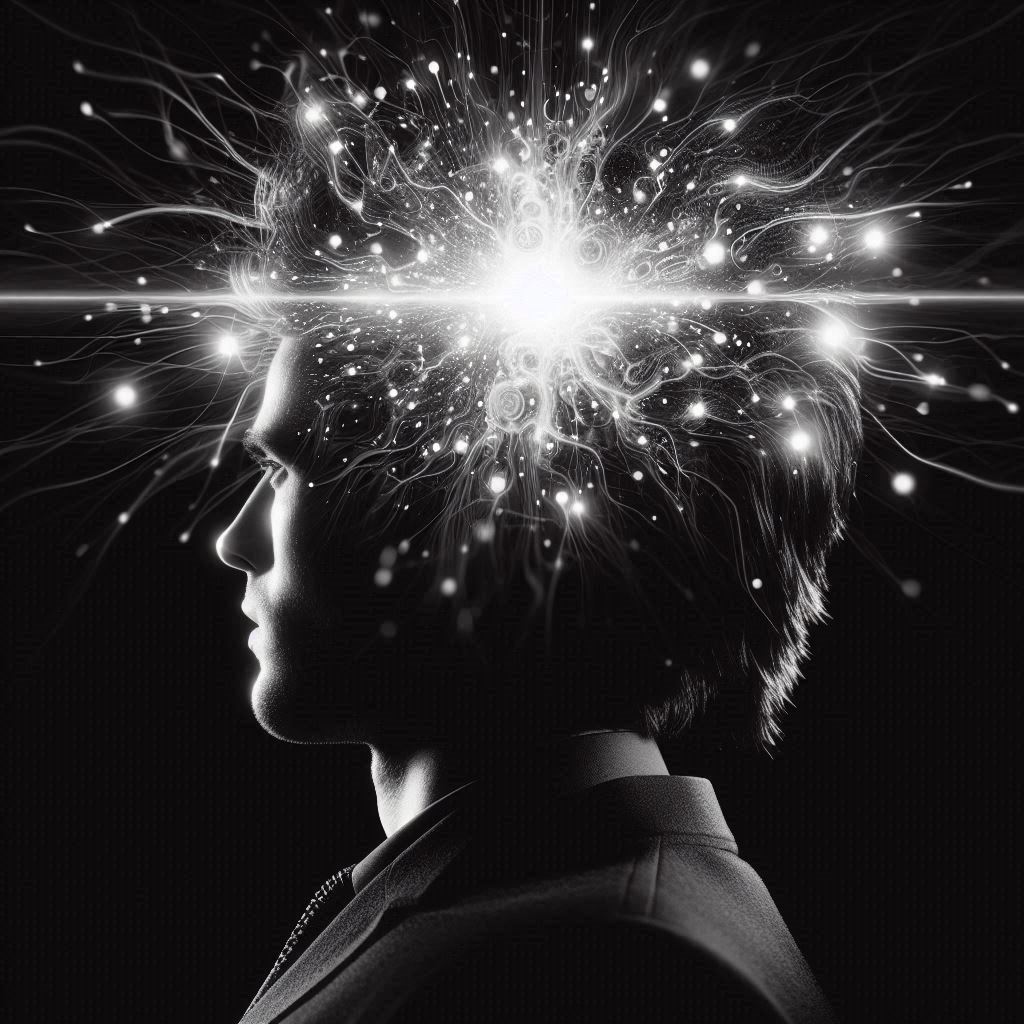Every day, millions of people rely on their morning cup of coffee or energy drink to kickstart their routine. But as caffeine consumption escalates, so do the concerns about its impact on mental health, particularly anxiety. Could that daily dose of your favorite stimulant be intensifying feelings of unease and stress? Given the rising prevalence of anxiety disorders, understanding how caffeine might influence our mental well-being is more crucial than ever. Let’s dig deeper into the relationship between caffeine and anxiety to see if cutting back could help you achieve a calmer, more balanced life.
Understanding Caffeine and Anxiety
Caffeine is a central nervous system stimulant that many people consume daily. It’s in coffee, tea, energy drinks, and even some medications. While it can boost alertness and energy, its relationship with anxiety is complex and worth examining.
Caffeine’s Mechanism of Action
Caffeine primarily works by blocking adenosine receptors in the brain. Adenosine is a neurotransmitter that promotes relaxation and sleepiness. When caffeine blocks these receptors, it prevents the relaxation response, leading to increased alertness and reduced feelings of tiredness.
Furthermore, caffeine also increases the release of other neurotransmitters like dopamine. Dopamine is often referred to as the “feel-good” neurotransmitter because it is associated with pleasure and reward. By enhancing dopamine release, caffeine can temporarily improve mood and focus.
However, these effects don’t come without a downside. The blocking of adenosine can lead to a buildup of this neurotransmitter, causing heightened feelings of anxiety once the caffeine wears off. High levels of dopamine might also result in overstimulation, which can exacerbate anxiety symptoms.
For a deeper understanding of how caffeine alters brain chemistry, you can refer to this detailed study on caffeine’s neurological effects.
Anxiety Overview
Anxiety is a broad term that describes various disorders characterized by excessive worry, fear, and related symptoms. Here are some common types of anxiety disorders:
- Generalized Anxiety Disorder (GAD): Persistent and excessive worry about various aspects of life such as work, health, or social interactions.
- Social Anxiety Disorder: Intense fear and avoidance of social situations due to feelings of embarrassment or judgment.
- Panic Disorder: Recurrent unexpected panic attacks that involve sudden periods of intense fear accompanied by physical symptoms like heart palpitations, sweating, and shortness of breath.
- Phobias: Irrational fears of specific objects or situations, such as heights, spiders, or flying.
Symptoms of anxiety disorders can significantly impact daily life, affecting everything from work productivity to social interactions. Common symptoms include:
- Rapid heartbeat
- Sweating
- Trembling
- Nervousness
- Difficulty concentrating
Globally, anxiety disorders are extremely prevalent, affecting around 284 million people worldwide. This makes anxiety one of the most common mental health conditions, highlighting the need for better understanding and management strategies.
Understanding how caffeine and anxiety interact is crucial. With anxiety disorders affecting so many people worldwide, it’s worth considering whether reducing caffeine intake could help manage symptoms. Could your daily caffeine fix be contributing to heightened anxiety levels? Exploring this relationship further may provide valuable insights into achieving a more balanced and calmer life. For more insights, visit this resource on managing anxiety symptoms.
Research Findings on Caffeine and Anxiety
Recent scientific studies have delved into the connection between caffeine consumption and anxiety, shedding light on both the positive and negative impacts associated with this popular stimulant.
Effects of Caffeine on Anxiety Levels
Multiple studies show that caffeine can worsen anxiety symptoms in people who are prone to such reactions. The stimulating effects of caffeine on the central nervous system can increase stress levels and trigger or intensify feelings of unease. For sensitive individuals, even moderate caffeine doses can lead to higher anxiety and restlessness.
Research indicates that caffeine consumption disrupts the brain’s neurotransmitter balance, especially involving adenosine and dopamine pathways. By blocking adenosine receptors, caffeine disrupts the body’s natural calming mechanisms, potentially raising anxiety levels. Additionally, the excess dopamine released by caffeine can make some people feel jittery and uneasy.
For additional insights on how caffeine impacts anxiety levels, see this comprehensive study on caffeine-induced anxiety.
The Role of Genetics and Sensitivity
Genetic factors are crucial in determining how sensitive someone is to caffeine and their likelihood of experiencing anxiety-related effects. Variations in genes that metabolize caffeine influence how quickly the body processes this stimulant. People with genetic variations that lead to slower caffeine metabolism may experience prolonged effects, which can heighten anxiety symptoms.
Individual sensitivity to caffeine also varies significantly. Some people are more prone to anxiety reactions even at lower caffeine doses. Factors such as age, weight, underlying health conditions, and overall caffeine consumption habits can impact how caffeine affects mental well-being. Understanding the interplay between genetics, sensitivity, and caffeine consumption helps individuals make informed choices about managing their caffeine intake to reduce possible anxiety triggers.
For a more in-depth look into the genetic aspects of caffeine sensitivity and anxiety, refer to this engaging study on genetic influences on caffeine metabolism.
Practical Tips for Managing Caffeine Intake
In our quest for a calmer state of mind, managing caffeine intake can play a pivotal role. By making mindful choices about what we consume daily, we can potentially alleviate some of the anxiety symptoms exacerbated by caffeine. Let’s explore some practical tips to guide you through this journey of reducing caffeine intake and promoting mental well-being.
Gradual Reduction Techniques
Embarking on a journey to cut back on caffeine doesn’t have to be an abrupt dive into the deep end. Gradual reduction techniques can help minimize withdrawal effects and make the transition smoother. Here are some step-by-step methods to consider:
- Start by Tracking Your Intake: Keep a journal or use a tracking app to record how much caffeine you consume daily. This awareness is the first step towards making informed decisions about reducing intake.
- Set Realistic Goals: Identify a target reduction percentage or a specific amount of caffeine to gradually eliminate from your routine. Setting achievable goals can prevent feelings of overwhelm.
- Replace Caffeinated Drinks: Swap out one caffeinated beverage per day with a decaffeinated alternative or herbal tea. Slowly incorporate more non-caffeinated options into your routine.
- Hydrate Regularly: Drinking plenty of water can help flush out caffeine from your system and reduce withdrawal symptoms like headaches and fatigue.
- Monitor Your Progress: Regularly check in on your caffeine consumption and how your body is responding to the changes. Celebrate small victories along the way to stay motivated.
By taking these incremental steps, you can ease the process of reducing caffeine intake and give your body time to adjust gradually.
Alternative Beverages and Lifestyle Changes
When cutting back on caffeine, it’s essential to find satisfying alternatives that can still provide comfort and hydration. Incorporating a variety of beverages and implementing lifestyle adjustments can support your journey towards a healthier balance. Consider the following suggestions:
- Explore Herbal Teas: Herbal teas come in a wide range of flavors and offer soothing benefits without the stimulating effects of caffeine. Options like chamomile, peppermint, or rooibos can be calming choices to replace your regular caffeinated drink.
- Decaffeinated Options: Opt for decaffeinated versions of your favorite beverages, such as coffee or tea, to enjoy the ritual without the jolt. Decaf coffee and tea maintain the aromatic and comforting aspects while containing minimal caffeine.
- Prioritize Sleep: Adequate rest is crucial for managing anxiety and overall well-being. Create a bedtime routine that promotes relaxation, such as reading a book, meditating, or listening to calming music to prepare your mind for restful sleep.
- Incorporate Regular Exercise: Physical activity is a natural stress reliever and mood booster. Engaging in regular exercise, whether it’s a brisk walk, yoga session, or dance class, can help reduce anxiety levels and enhance mental clarity.
- Practice Stress Management: Implement stress-reducing techniques like deep breathing exercises, mindfulness meditation, or journaling to cope with daily pressures and promote mental resilience.
By embracing alternative beverages and making holistic lifestyle changes, you can create a supportive environment for reducing caffeine intake and cultivating a sense of balance and well-being.
To further explore alternative beverages and lifestyle adjustments for managing anxiety, you can refer to insightful resources like Healthline’s guide to caffeine alternatives and Mindful’s tips for stress relief.
Remember, every small step towards a healthier relationship with caffeine contributes to your overall mental wellness. By incorporating these practical tips into your daily routine, you can embark on a journey towards a more balanced and harmonious lifestyle.
Personal Stories and Testimonials
When it comes to reducing caffeine intake and its impact on anxiety, real-life experiences can offer valuable insights and motivation. Let’s delve into personal stories and testimonials from individuals who have successfully cut back on caffeine and noticed a positive shift in their anxiety levels.
Sarah’s Journey to Balance
Sarah, a 32-year-old marketing professional, found herself relying on multiple cups of coffee throughout the day to tackle her demanding workload. Despite the initial boost in energy, she started experiencing heightened anxiety and restlessness, making concentration a challenge. Recognizing the potential link between caffeine and her anxiety, Sarah decided to gradually reduce her intake.
“I began by swapping out one cup of coffee with herbal tea each day,” Sarah recalls. “The transition wasn’t easy, but over time, I noticed a significant improvement in my anxiety levels. I felt more at ease and less jittery, allowing me to approach tasks with a clearer mind.”
Through mindful tracking of her caffeine consumption and incorporating relaxation practices like deep breathing, Sarah not only managed to reduce her reliance on caffeine but also regained a sense of calmness in her daily routine.
Mark’s Discovery of Decaf Delight
For Mark, a 45-year-old father balancing a hectic schedule, coffee was synonymous with productivity and alertness. However, persistent feelings of nervousness and irritability led him to reconsider his caffeine habits. After consulting with a healthcare provider, Mark decided to introduce decaffeinated coffee into his morning ritual.
“The switch to decaf was a game-changer for me,” Mark shares. “I no longer experienced the sudden energy crashes or overwhelming anxiety spikes. Mornings became more serene, and I could approach work and family time with a newfound sense of balance.”
By embracing decaffeinated alternatives and prioritizing a good night’s sleep, Mark found a sustainable way to manage his caffeine intake while enhancing his overall well-being.
Laura’s Lifestyle Shift for Serenity
Laura, a 28-year-old yoga instructor, initially believed that caffeine was essential to fuel her active lifestyle. However, persistent feelings of anxiousness and disrupted sleep patterns prompted her to explore holistic approaches to mental wellness. By incorporating herbal teas, regular exercise, and mindfulness practices into her daily routine, Laura noticed a remarkable change in her anxiety levels.
“Embracing a caffeine-free lifestyle was a revelation for me,” Laura reflects. “I found solace in herbal teas that nurtured my body and mind without the caffeine-induced jitters. Coupled with yoga and meditation, I felt a profound sense of serenity and balance that transcended my previous anxieties.”
Laura’s journey exemplifies the transformative power of lifestyle adjustments in managing anxiety and fostering inner peace. By prioritizing self-care practices and mindful choices, she sculpted a harmonious path to overall well-being.
These personal stories highlight the diverse experiences individuals have when reevaluating their caffeine consumption and its impact on anxiety. By sharing these testimonials, we aim to inspire and empower readers to embark on their own journeys of introspection and positive change. Remember, every step towards a healthier relationship with caffeine is a step towards cultivating a more serene and balanced life.
For further motivation and insights on reducing caffeine intake for anxiety management, you can explore firsthand accounts on Everyday Health’s platform and Eat This, Not That’s testimonials.
Consulting a Healthcare Professional
Making changes to your caffeine consumption or addressing anxiety symptoms can be a significant decision impacting your overall well-being. Before embarking on any modifications to your routine, seeking advice from a healthcare provider or mental health professional is crucial. Their expertise and guidance can offer personalized insights tailored to your unique health profile and concerns.
Importance of Professional Consultation
Consulting a healthcare professional before altering your caffeine intake or addressing anxiety allows for a comprehensive evaluation of your current health status and individual needs. Healthcare providers possess the expertise to assess how caffeine interacts with your body and mental health, considering factors like existing medical conditions, medication interactions, and personal sensitivities.
By discussing your caffeine habits and anxiety symptoms with a professional, you can gain clarity on the potential risks and benefits of making changes. Healthcare providers can offer evidence-based recommendations, monitor your progress, and provide informed guidance to support your journey towards improved well-being.
When to Seek Professional Help
It’s essential to recognize the signs that indicate the need for professional intervention when managing caffeine consumption or anxiety symptoms. Consider seeking healthcare guidance if you experience:
- Persistent and overwhelming anxiety that interferes with daily activities
- Severe physical symptoms alongside anxiety, such as chest pain or difficulty breathing
- Difficulty managing caffeine intake despite efforts to reduce consumption
- Concerns about caffeine dependence or withdrawal symptoms
- Impact of anxiety on quality of life, relationships, or work performance
A healthcare professional can offer a range of interventions, from lifestyle recommendations to therapeutic strategies, tailored to your specific needs. Remember, seeking professional help is a proactive step towards prioritizing your mental health and well-being.
Consulting a healthcare professional empowers you to make informed decisions about managing caffeine intake and anxiety effectively. Their expertise and support can guide you towards personalized strategies that promote a balanced and harmonious life. For reliable information on healthcare resources and mental health services, you can explore reputable platforms like Healthline’s guide to finding mental health support and Psychology Today’s therapist directory to connect with qualified professionals in your area. Remember, your well-being is paramount, and seeking professional guidance is a proactive step towards achieving optimal health and happiness.
Conclusion
In navigating the intricate relationship between caffeine and anxiety, it becomes evident that moderation and mindfulness are key to fostering mental well-being. The stimulating effects of caffeine offer short-term boosts in energy and focus, but the long-term repercussions on anxiety levels merit consideration. Understanding how caffeine disrupts neurotransmitter pathways and recognizing individual sensitivity sheds light on its nuanced effects on mental health.
Personal anecdotes and scientific findings alike underscore the importance of evaluating one’s caffeine intake and its potential impact on anxiety symptoms. By embracing gradual reduction techniques, exploring alternative beverages, prioritizing lifestyle adjustments, and seeking professional guidance, individuals can embark on a journey towards a more balanced and harmonious lifestyle.
As you reflect on the insights shared in this exploration of caffeine and anxiety, consider your own caffeine habits and how they may influence your mental well-being. Taking small steps towards reducing caffeine intake and prioritizing self-care can pave the way for a calmer and more serene existence. Your journey towards better anxiety management starts with awareness and intentional choices.
If you feel inspired to explore a caffeine-reduced lifestyle for improved anxiety management, remember that every decision towards self-improvement is a step towards holistic well-being. Embrace the journey with compassion for yourself and a commitment to nurturing your mental health. Your well-being deserves attention and care, and making informed choices about caffeine consumption is a meaningful stride towards a more balanced and tranquil life.








